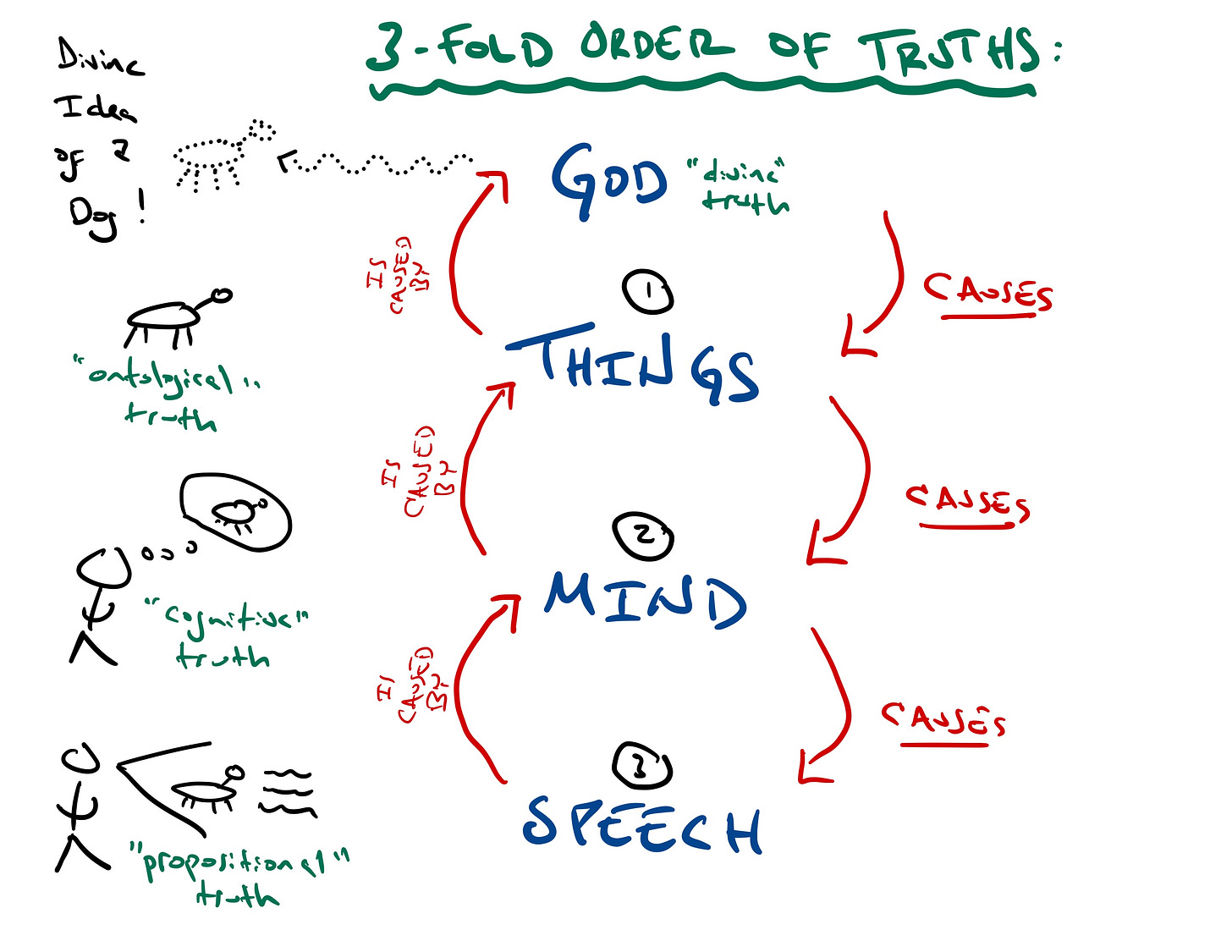Is This Fake News? We can All Practice Truthfulness: A Lost Virtue—And It Means More than You Think!
We are made to know, to speak, and to do the truth in love.
In an age of fake news, we would all appreciate a little more truthfulness in the world. It can be difficult to sort out fact from fiction, reality from illusion, and opinion from knowledge. As it happens, truthfulness is not only something that we can cultivate in our speech and writing but in our lives as well.
What lies within our circle of influence? We may not be able to change the major news outlets and the army of twitter and youtube commentators. But we can certainly begin to build a culture of truthfulness in our lives—with our family, our friends, our colleagues, and our clients. And it starts with us. That is good news because it means we can take action, in little ways, right now.
What is Truth?
In the Gospels, the Roman governor of Judaea, Pontius Pilate, famously asks: What is truth? (John 18:38). Jesus has just been arrested, his disciples have fled, and he has been brought before the Sanhedrin and the chief priest to be questioned. The authorities bring him to Pilate seeking the death penalty. Pilate speaks with Jesus, seeking to know not what he has said or done but who he is.
Pilate is really interested in whether or not Jesus thinks of himself as the king of the Jews, whether he claims that revolutionary identity for himself. “Are you the king of the Jews?” (Jn 18:33). Again, he asks: “So you are a king?” (Jn 18:37).
Jesus responds: “You say that I am a king. For this I was born, and for this I have come into the world, to bear witness to the truth. Every one who is of the truth hears my voice.” (Jn 18:37). And then, as we noted, Pilate asks: “What is truth?”
The mission of Christ is thus to bear witness to the truth. And those who are of the truth are able to hear his voice. Like is known by like. One who has truth in himself will be able to recognize the truth in others. Further, the one who is truthful is the true king over himself and over others. It is a mode of “rule” that is not like the world. It works through persuasion, not by force.
The Threefold Order of Truths
Classical philosophy, as carried into the medieval and scholastic world, understood truth as the “agreement of thing and intellect” (adaeqautio rei et intellectus). One could understand truth, according to this definition in three ways.
First, there is the truth of speech. I know something truly when my understanding of the thing is “equal” to the thing itself. This is the truth as it is in our understanding. Second, my speech is then true when it accurately reflects my true understanding of the thing itself. This is the truth of speech.
But according to the medieval philosophical and theological tradition, things themselves have their own truth value, independent of our knowing or speaking of them. And here is where things get interesting. Things are true or not insofar as they “live up to” or are “equal to” the idea of them in the mind of God.
This is actually still reflected in our ordinary way of speaking. If someone says: you are a true friend, it means that you live up to the ideal of friendship. If someone says: that olympian is a true athlete, it means that the olympian lives up to the idea of athlete. One might think of these perfections or ideals, in the classical philosophy, as Platonic forms or in the very mind of God.
In summary, there is a threefold order of truth:
The truth of things, as a thing is equal to its exemplar in the mind of God. Think of a true friend, a true athlete, a true gift. These things are true insofar as they “live up” to the exemplar of them in the mind of God.
The truth of ideas, as our understanding of a thing is equal to the thing itself in the world. This is the truth of a friend or an athlete or a gift as we properly understand it in our mind as measured by reality.
The truth of speech, as our speech is equal to our understanding of the thing. Our speech is true when it accurately reflects our knowledge of a particular thing and insofar as that knowledge or idea is equal to the thing itself.
In each case, truth results from an “adequation” or agreement of mind and intellect. But in the first two cases, that of human speech and knowledge, the thing is the measure of the intellect. The thing outside the world causes truth within us. But in the third case, the truth of things in relation to the mind of God, the intellect is the cause of the thing. In other words, the truth of God is the measure of—and indeed, the cause of—the truth in things, while the truth of things is the measure of truth in our mind and in our speech.
Sidebar: All of that was some pretty heavy philosophy and theology that could easily be expanded into a book. In fact, if you are looking for one, I would recommend Living the Truth by Josef Pieper. It is a superb introduction to the topic. One could also take a look at the Summa Theologiae (esp. ST I, q. 16).
Living the Truth
So, what does all of this have to do with the quest for happiness, living a worthy life, and pursuing meaning and purpose in the world? Simply put, we are ordered not only toward knowing the truth and speaking the truth but also toward living and doing the truth. We are to know, to speak, and to “do” the truth.
Bearing witness to the truth not only means speaking the truth but also living the truth. I suppose this is the basis for the old adage to proclaim in both word and deed: to preach always—and to use words when necessary.
Simply put, we are ordered not only toward knowing the truth and speaking the truth but also toward living and doing the truth. We are to know, to speak, and to “do” the truth.
More deeply, it means that we will only be able to live the truth when we know our deepest identity. A true friend is one that can live up to all that a friend can be. A true spouse is one that can live up to all that a spouse can be. A true mother or father is one who lives up to the great vocation of that name.
The one who is Truth (John 14:6) says: for this I came into the world, to bear witness to the truth. We all share in that call, for to live the truth is to live out the deepest meaning of our existence and to bear witness to the world. To live in the truth is to embody the truth that we are related in love, that we are from, with, and for others. To the extent that we mirror that goal, we live in the truth.




